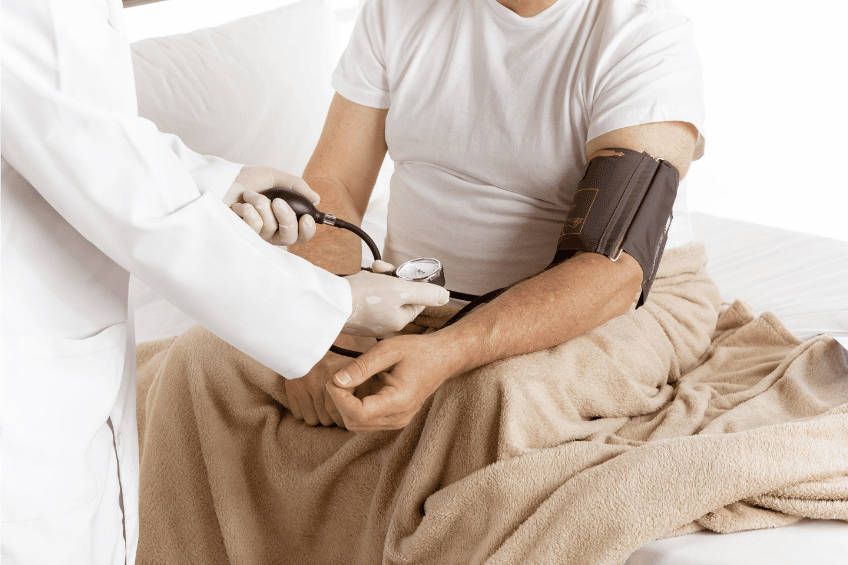Difficulty recovering from infections.
Having lymphoma normally means that the immune system doesn’t work the way it should. White blood cells (lymphocytes) are there to fight infections. In lymphoma, the body produces cancerous, unhealthy white blood cells, in which case infections can develop more easily, be more severe or long-lasting than they would normally be.
Infections often cause a raise in the body temperature and can make us feel hot and shivery. Other symptoms depend on the localization of the infection. [8]
Other symptoms.
Other symptoms of lymphoma are less common and may develop depending on the location. Chest symptoms can be present in any type of lymphoma. Swollen lymph nodes in the chest press on the airways and lungs, and they may cause dry cough, shortness of breath, noisy breathing, pain behind the breastbone, a feeling of pressure in the chest, which gets worse when lying down.
Lymphoma can develop in the lymph nodes in the abdomen or lymphatic tissue in the liver or spleen. It can even develop outside the lymphatic system (extranodal lymphoma), commonly in the gut. The symptoms are generally the following:
- pain behind the ribs on the left side, or feeling bloated or not full after eating;
- a yellow tinge in the whites of the eyes;
- feeling bloated due to a build-up of fluid in the abdomen;
- abdominal pain, nausea, diarrhea or constipation.
